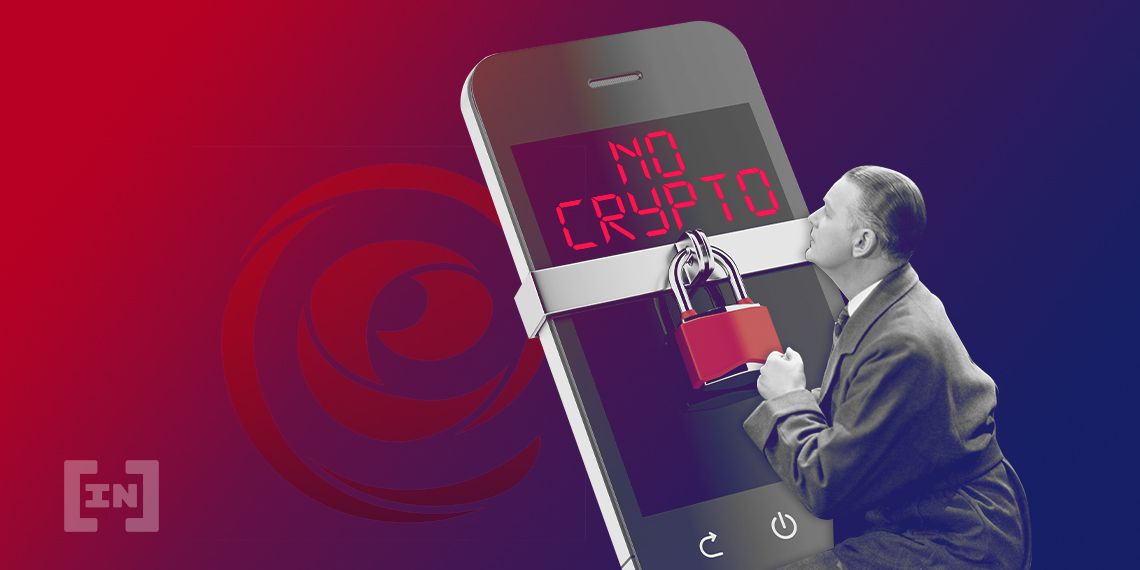The aptly named electronic payments system has announced that a reboot of their service will not include access to cryptocurrencies.
This comes after accusations of money laundering led to a seven-month freezing of customer accounts. Previously, crypto accounted for 20% of their transactions.
The Disappearing Account Balance
ePayments, a digital payments company based in the UK, is a heavyweight in parts of Europe. The company boasts over 1 million accounts and has issued 75,000 debit cards. According to their regulator filings, they made profits of £18 million in 2019. But on February 11, 2020, users received a letter from the company explaining a freezing of all accounts. The decision was made in conjunction with the Financial Conduct Authority (FCA) because of a “weakness” in their Anti-Money Laundering (AML) protocol. A week after the UK regulator forced the suspension, company executive Robert Courtneidge resigned without giving a reason. The funds held by ePayments totaled an estimated £125 (~$161) million, large amounts of which remain inaccessible for withdrawal. The company has refused to discuss the issue with media, citing legal reasons.Email from Ruja Ignatova at One Coin to Mark Scott, on trial @SDNYLIVE for money laundering for #OneCoin. https://t.co/9vcXT0Oiwm pic.twitter.com/JleQGOLMND
— Inner City Press (@innercitypress) November 13, 2019
The Crypto Connection
Despite some suspicious activity, a significant reason for the company’s hiatus appears to be related to US ePayments partner Mike Scott. Scott was found guilty of laundering $400 million for the OneCoin crypto scam. OneCoin is a giant pyramid scheme headed by Ruja Ignatova, a Bulgarian businesswoman who disappeared soon before her planned arrest and remains on the run. Prosecutors caught Scott red-handed, including an e-mail in which Ruja directly asks for help laundering cash. https://twitter.com/DSX_uk/status/966655158867382275 About 20% of ePayments transactions came from the Digital Securities Exchange (DSX), a crypto exchange with ties to the company. DSX assisted in onboarding new ePayments customers as well. In 2018, DSX suspended service because of an unspecified “security incident.” These issues brought ePayments under regulatory scrutiny and led to its temporary closure.All About the Timing
ePayments eagerly wants to re-open to revive their reputation and unfreeze user funds. In a September 14, 2020 blog post, the company announced a reboot of its website and services under new terms.Though the service has not come back online yet, the post claims that it was working hard at fixing compliance issues. As such, future payments on the platform will only occur from banks, bank cards, and prepaid cards. Unfortunately, part of the company overhaul includes ending cryptocurrency custody, which it once offered. Ironically, a major issue with the controversy is that OneCoin is not a cryptocurrency at all. The fraudulent scheme does not use a blockchain or the ability to spend OneCoin outside of internal company stores. The project denies the claim, despite never providing evidence. This is another example of how cryptocurrencies remain under suspicion for criminal use.We are getting ready to start working together again. Please visit our blog to read the latest news: https://t.co/5Agdtij7OI
— ePayments (@myepayments) September 14, 2020
Top crypto platforms in the US
Disclaimer
In adherence to the Trust Project guidelines, BeInCrypto is committed to unbiased, transparent reporting. This news article aims to provide accurate, timely information. However, readers are advised to verify facts independently and consult with a professional before making any decisions based on this content. Please note that our Terms and Conditions, Privacy Policy, and Disclaimers have been updated.
Harry Leeds
Harry Leeds is a writer, editor, and journalist who spent much time in the former USSR covering food, cryptocurrencies, and healthcare. He also translates poetry and edits the literary magazine mumbermag.me.
Harry Leeds is a writer, editor, and journalist who spent much time in the former USSR covering food, cryptocurrencies, and healthcare. He also translates poetry and edits the literary magazine mumbermag.me.
READ FULL BIO
Sponsored
Sponsored

